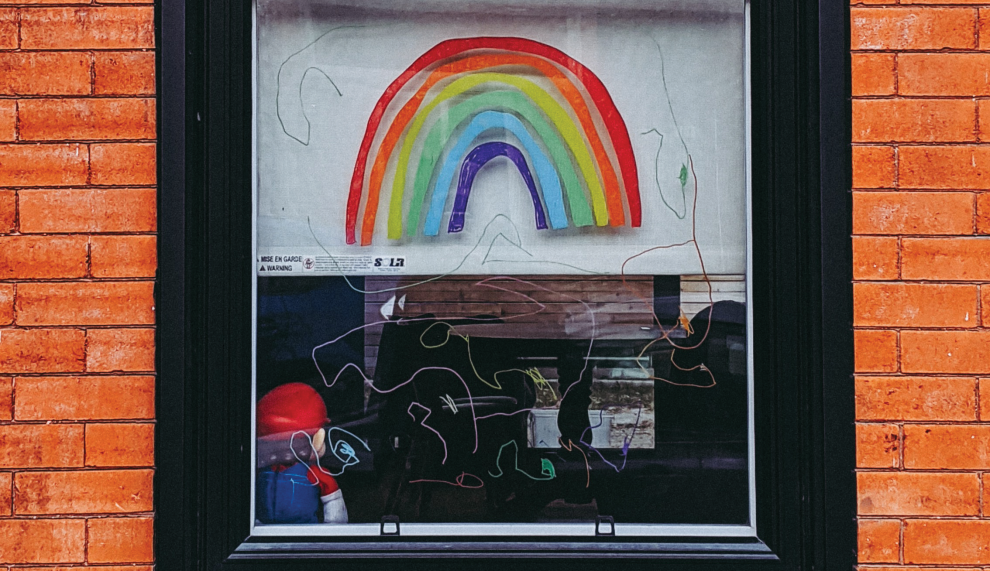I’ve always been drawn to the Catholic liturgy,” a (non-Catholic) friend of mine once told me over breakfast, “but I can’t get past the Trinity. Three persons in one God. What does that even mean? It doesn’t make any sense.”
At the time, I think I deflected her remarks. I probably said something like, “Yeah, it doesn’t make a lot of logical sense” or “Yep, that’s why it’s called a mystery.” Now, though, I wish I had been braver, less afraid of diving into the deep questions over coffee and French toast.
If I had, I would have told her that far from being one of the things that drives me away from the church, the Trinity has always been one of the things that keeps me Catholic, keeps me tied to our faith despite the sex abuse crisis, the limited role of women, and the frequent mistreatment of LGBTQ people.
To believe in the Trinity is to believe that there is no God without relationship: The Father does not exist without the Son, nor the Spirit without the Creator. It is to believe that those relationships are so integral to the Divine that they, in a vital sense, are the Divine. When we talk about God, we are talking about relationships.
Think of God as the relationships between and among all of creation, and you start seeing the holy in the most unexpected places. In human relations, yes, but also in art, ecosystems, and physics.
But nowhere, in recent experience, have I felt this God-as-relation more than in our response to COVID-19. Everywhere I look people are reaching out toward one another. My neighbor who makes a box full of fabric masks every day and leaves them on her stoop for whomever needs them. The online church services I attend, followed by virtual coffee hour. The pie that my friends dropped off at my door for my birthday, even though I couldn’t see them in person. The dozens of Zoom calls, group texts, and phone calls between people across the country whom I love dearly and yet have sometimes failed to keep in close touch with during normal times.
“God is communion and not solitude,” writes Latin American liberation theologian Leonardo Boff in Cry of the Earth, Cry of the Poor (Orbis). You don’t have to be a theologian to have this sentence resonate in your soul. Where else do Catholics experience God but at Mass, in Holy Communion? What happens when that experience of God is disrupted? When we can no longer worship in community, much less experience God through the Eucharist?
Think of God as the relationships between and among all of creation, and you start seeing the holy in the most unexpected places.
Advertisement
Over the weeks and months of quarantines and stay-at-home orders, Catholics have struggled with how to live out their faith and experience God when they can’t experience the sacraments or when Mass is viewed on a TV or laptop screen. “It felt weird to be watching church on the TV with my dog in my lap,” a friend told me. “Am I supposed to stand up? Kneel? Can I be drinking coffee?” Another friend told me that despite Easter being one of her favorite holidays, she couldn’t bring herself to watch the virtual service this year. “It was just too sad. I felt so disconnected,” she said.
In today’s new world of face masks, social distancing, and changing definitions of communities, focusing on the Trinity offers a renewed way to live out our faith and feel God’s presence. “God is love” (1 John 4:16), whether that love is poured out in bread and wine or expressed through grocery shopping for an elderly neighbor, sending a card to a friend, or just staying at home to protect the most vulnerable from COVID-19.
Jesus says, “For where two or three are gathered in my name, I am there among them” (Matt. 18:20). He never said those two or three couldn’t be gathered over Zoom.
This article also appears in the June 2020 issue of U.S. Catholic (Vol. 85, No. 5, page 7). Click here to subscribe to the magazine.
Image: Unsplash














Add comment